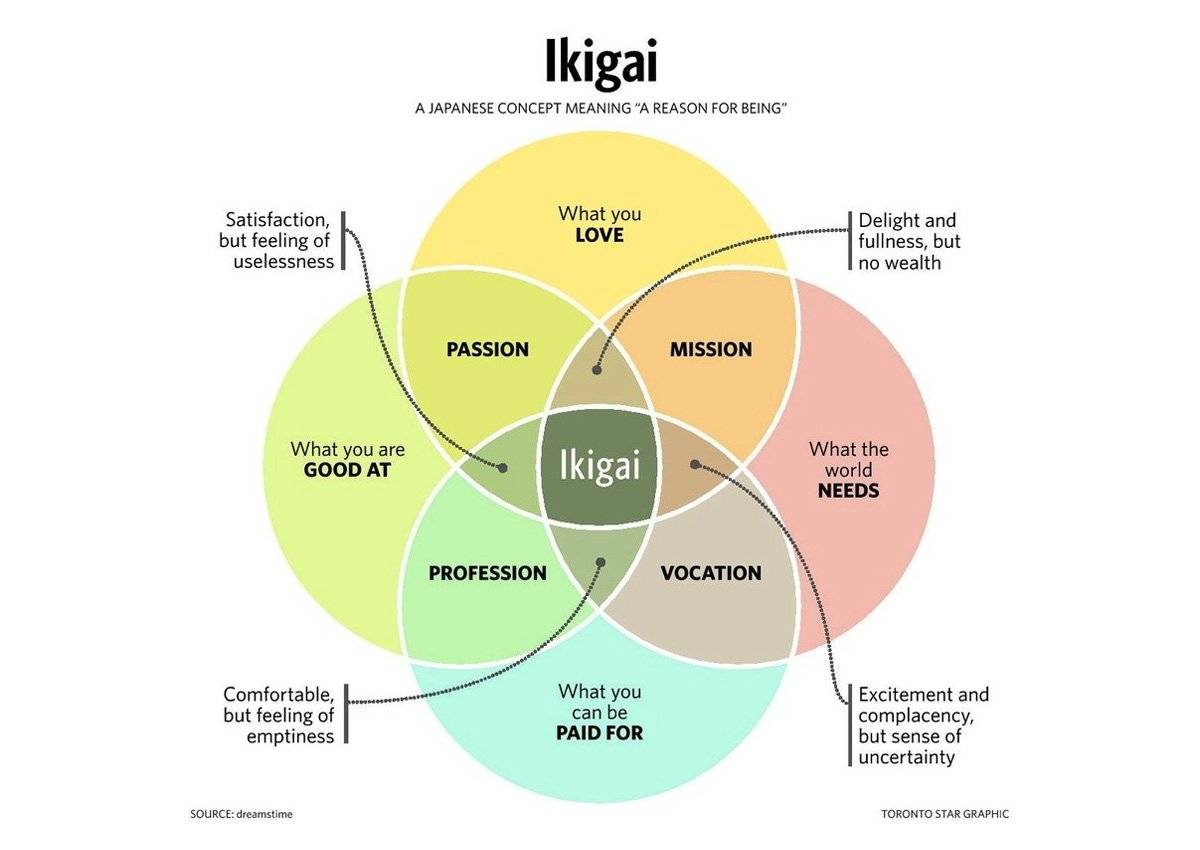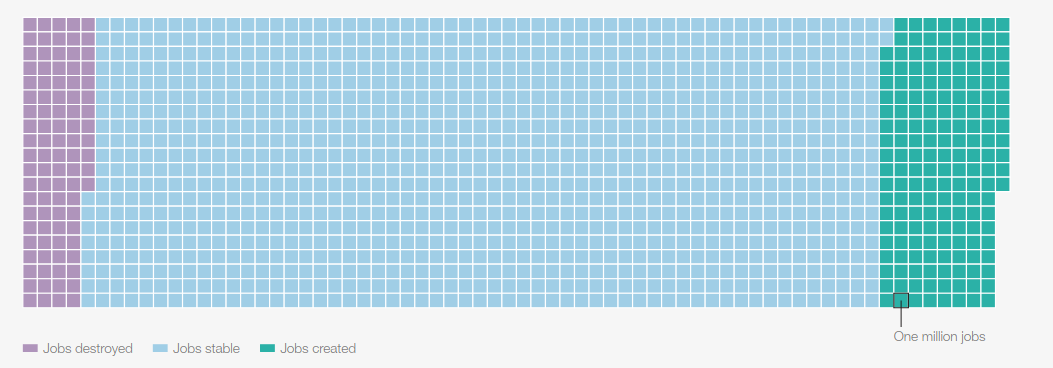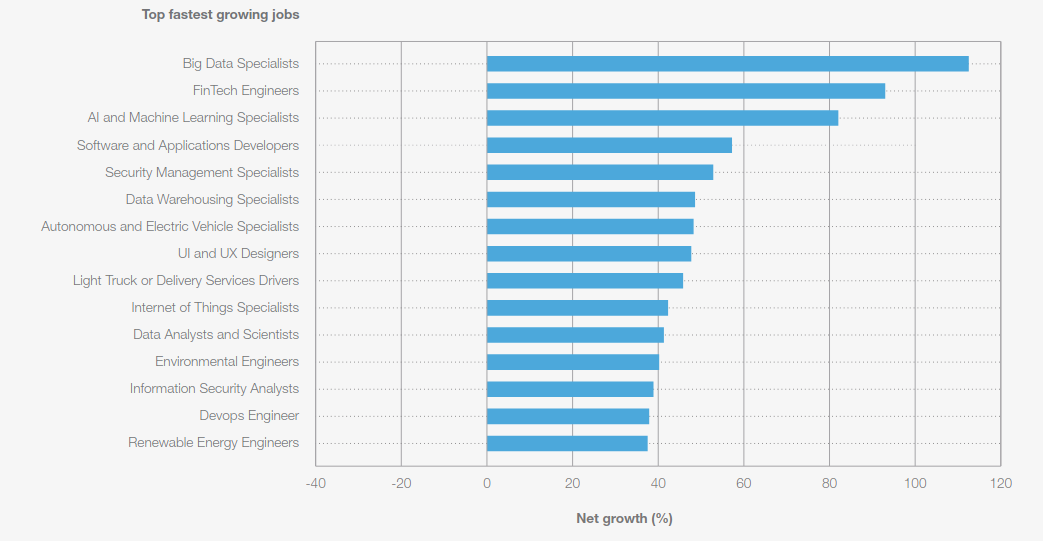If you aren’t familiar with Ikigai, it is a Japanese concept for creating “a reason for being” by choosing a job that you love, are good at, can be paid for and the world needs.
 As AI transforms industries, achieving Ikigai becomes more challenging. How can we align our passions and skills with the rapidly changing needs of the world?
As AI transforms industries, achieving Ikigai becomes more challenging. How can we align our passions and skills with the rapidly changing needs of the world?
Industrial Revolution vs AI revolution
Humans have two types of abilities:
- physical (body)
- cognitive (mind)
In industrial revolution, we lost the physical ability to the machines. Machines could do physically demanding tasks such as farming, mining and factory work much better than humans. But humans still could rely on their cognitive abilities.
In AI revolution, we are losing the cognitive ability to the machines. Machines can do cognitively demanding tasks such as finding patterns (fraud detection, face detection, cancer detection), decision-making in kind environments, NLP, etc.
AI has 3 other unique abilities that we humans lack.
- Connectivity: humans are individual beings. we can’t share what we learned over a global network and make the whole world to learn what we learnt. However, AI models can share their data and train themselves over a global network.
- Updatability: When a new medicine is created, It takes a while to update all doctors around the world to know about that medicine. However, an AI doctor can get the latest updates in a matter of seconds.
- Customization: Take teaching for instance. With AI, we can have a teacher for every student. Courses are designed based on the student’s strength and weaknesses.
Adapting to the AI Revolution?
 According to this report, while 92 million jobs are expected to disappear in the next five years, 170 million new jobs will emerge:
According to this report, while 92 million jobs are expected to disappear in the next five years, 170 million new jobs will emerge:
The challenge lies in acquiring the necessary skills for these new jobs. The skills learned today may become irrelevant within a few years, making continuous learning essential. In the future, the greatest hurdle may not be the lack of jobs but the mental stamina required to keep up with rapid skill evolution.
The Layoff Landscape
Mass layoffs post-pandemic have stemmed from several factors:
- Over-Hiring During the Pandemic: The digital boom during COVID-19 led to excessive hiring, which became unsustainable afterward.
- A Competitive Market: Since the hype about six-figure salaries and high prestige of being a computer engineer, there has been lots of entries to the computer engineering field making it even more competitive.
- The Rise of AI: AI can now perform many tasks traditionally handled by junior developers, reducing the need for entry-level employees.
Breaking into the Tech Industry
- Start with startup/smaller companies: These companies don’t have the money or don’t want to spend the money for a senior developer, so they hire beginners and teach them with lower wages.
- Find out what makes you unique from others: For example if you know about finance and machine learning, go for a fraud detection position. If you have knowledge of graph theory and are good at programming, apply for online taxi services’ or maps’ positions.
- Have a mindset of helping others: Contribute to opensource projects. Volunteer to work for free. Most companies don’t pass on free work force easily.
Fastest Growing Jobs

- Big Data Specialists: People who analyze big chunks of data to help businesses make smart choices.
- FinTech Engineers: Engineers who build apps and tools for online banking and digital money.
- AI and Machine Learning Specialists: Experts who teach computers to think and learn like humans.
- Software and Applications Developers: People who create apps and programs for computers and phones.
- Security Management Specialists: Professionals who keep company data safe from attackers.
- Data Warehousing Specialists: Experts who organize and store large amounts of data for easy access.
- Autonomous and Electric Vehicle Specialists: People working on self-driving and electric cars.
- UI and UX Designers: Designers who make websites and apps easy and fun to use.
- Light Truck or Delivery Drivers: Drivers who deliver goods to homes and businesses.
- Internet of Things Specialists: Experts who connect everyday devices (like smart lights) to the internet.
- Data Analysts and Scientists: People who study data to find useful patterns or trends.
- Environmental Engineers: Engineers who solve problems to protect the planet, like reducing pollution.
- DevOps Engineers: IT professionals who help deploy apps and make them ready for customers to use.
- Renewable Energy Engineers: Engineers who create better ways to use solar, wind, and other green energy.
Other Jobs worth mentioning:
- AI security (Adversarial Machine Learning): every new technology has its own security Issues and policies
- Explainable AI: Answering the question of why did this AI model do that action or make this decision?
So What Skills to Learn?

Analytical Thinking: The ability to break down a complex concept, learn each part so that you finally be able to understand that complex subject. As the world is rapidly changing, and we are faced daily with complex concepts, this skill would be crucial.
Resilience, Flexibility and Agility: Being able to change as the market changes in a short period of time.
Leadership and Social Influence: Being able to communicate effectively and leading others toward a solution
Creative Thinking: Connecting the knowledge dots together and coming up with a unique solution to a problem.
Curiosity and Lifelong Learning: Always being curious about how and why things work and willing to learn every day.
Suggestions for Governments
Governments play a critical role in ensuring that citizens can adapt to the rapidly changing job landscape. Here are a few actionable ways governments can support individuals and industries:
Create a Lifelong Learning Sector
- Shift the traditional education model to one that emphasizes continuous learning throughout a person’s life.
- Invest in platforms that provide free or affordable online courses, certifications, and vocational training tailored to emerging industries like AI, renewable energy, and data science.
- Example: Programs like Singapore’s SkillsFuture initiative or Germany’s apprenticeship system can serve as models for offering structured lifelong learning opportunities.
Support Up-Skilling and Re-Skilling Efforts
- Partner with private companies to offer subsidized or government-funded training programs.
- Provide tax incentives to companies that train their employees in emerging skills or sponsor employee certifications.
- Launch bootcamps or scholarships aimed at sectors with high growth potential, such as FinTech or green energy.
Broaden the Definition of Work
- Recognize and reward unpaid but essential contributions like parenting, elder care, and community service.
- Implement policies such as stipends or tax benefits for caregivers, which would alleviate financial stress and ensure better quality of care.
- Encourage environmentally sustainable jobs by subsidizing roles in environmental stewardship or conservation efforts.
Introduce Universal Basic Income (UBI)
Ensure Accessible Digital Infrastructure
- Invest in high-speed internet and digital tools in underserved areas, ensuring equitable access to online education and remote job opportunities.
- Provide free or low-cost devices and software to bridge the digital divide and create equal opportunities for all.
Conclusion
The future of work is in our hands. Whether you’re entering the job market or considering a career shift, now is the time to invest in lifelong learning and adaptability.
References
21 Lessons for the 21st century, Yuval Noah Harari. chapter 2: work
World Economic Forum Report 2025
https://www.skillsfuture.gov.sg/AboutSkillsFuture?utm_source=chatgpt.com